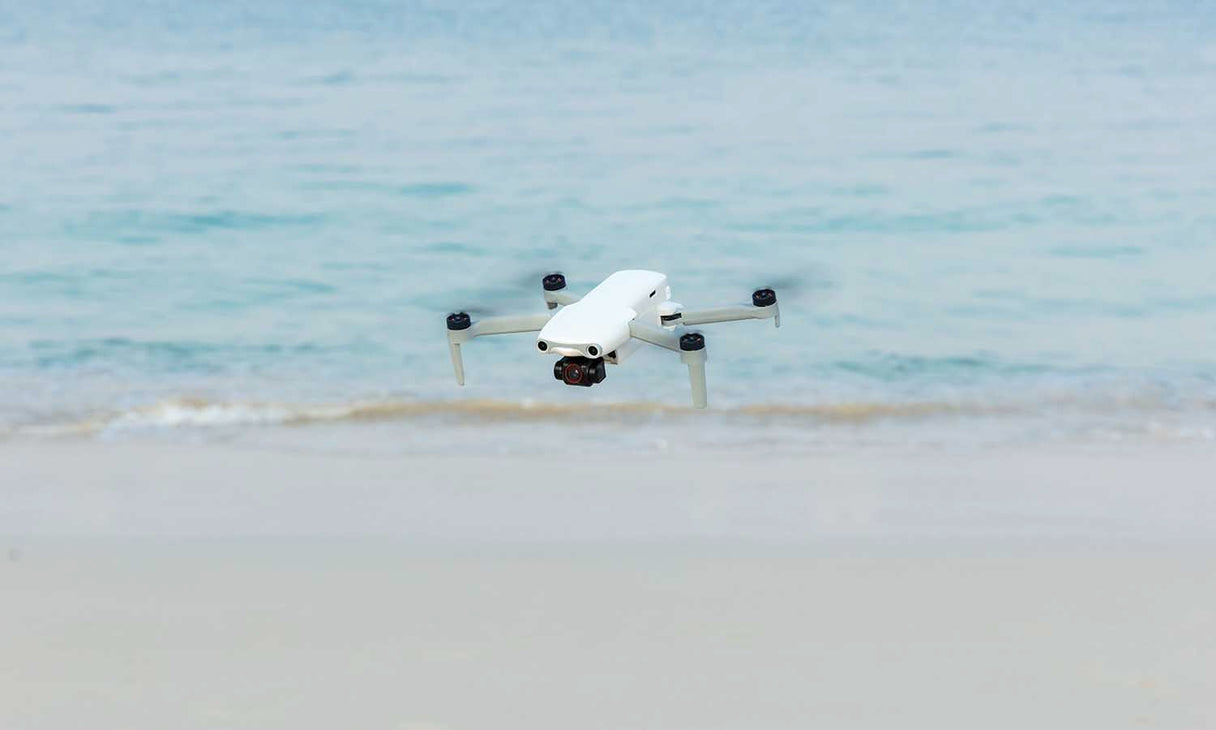The beach always has beautiful scenery. It is not only a favorite place for drone photographers, but also the best place for drone novices to learn to fly a drone. Bring your drone and enjoy the ocean views as we bring you our top tips for safe and enjoyable flying at the beach.
Flying at the Beach: Important Tips

Know your local drone flying regulations
Before flying your drone near the sea, you need to consider the rules and regulations in place to protect you, others and your drone!
- Avoid flying with high density crowds
- Can't fly over others
- Keep the drone within sight at all times while flying
Check weather conditions
Before flying, always check the weather forecast. Avoid flying in weather conditions such as strong winds, heavy rain, or fog, as these conditions may affect the stability and control capabilities of the drone.
Choose an appropriate location
Find a suitable site in an open area close to the beach. Avoid crowded areas, people and boats to reduce the risk of collisions.

Keep a safe distance
Keep a safe distance between the drone and any people, boats or wildlife in the water. This helps prevent accidents and maintain privacy.
Calibrating your drone’s compass
Before taking off, calibrate your drone's compass according to the manufacturer's instructions. This ensures precise navigation and prevents any unexpected behavior on the beach.
Fly within sight
When flying your drone, always keep it within sight. This allows it to monitor its position, avoid obstacles, and react quickly if needed.
Pay attention to battery life: Flying the drone on the beach may require more power because of wind resistance. Monitor your drone's battery level and plan flight times accordingly to ensure a safe return to land.
Enable return-to-home function
Most drones have a return-to-home function, which can automatically bring the drone back to the take-off point. Smart RTH ensures the drone returns to your location before the battery runs out. Enable and test this feature before flying your drone so you have a reliable option in an emergency.

Choose the right accessories
Having the right accessories can make your flying experience much easier. Accessories such as landing pads and lanyards are designed to help keep your drone safe. Hard-shell plastic cases are water and dustproof, keeping beach sand and sediment out of your gear.
Try some drone testing
The beach is one of the favorable conditions for drone flight. Here you can fully test the wind resistance of the drone and the image transmission signal distance of the drone.
Write at the end
Flight safety should always be your first concern when flying a drone, especially flying on the beach. By following these guidelines and using common sense, you can enjoy the experience while minimizing your risks.







